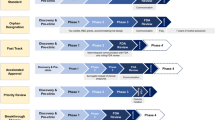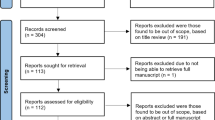Abstract
In April 2018, Japan’s first law regulating clinical research went into effect. The law aimed to strengthen regulations on research integrity and conflicts of interest, which had been limited under existing administrative guidelines; the law also provided stipulations for legal penalties. The scope of the new regulations, however, is limited entirely to studies that evaluate unapproved drugs or the off-label use of approved drugs, and those that receive funding from companies. On the other hand, the law’s application brings numerous complications, including the establishment of new review committees, troublesome procedures for transitioning studies that are currently underway, and ambiguities about the scope of what constitutes best efforts. Thus, the change has led to substantial strain and confusion in the field. This paper offers an overview of the law and its background, and discusses its future prospects from the practical standpoint of managing ethics committees and providing research ethics support in the field.

Similar content being viewed by others
Notes
When the official seal is stamped, it is theoretically necessary for the head of the organization to review the contents, but my point applies to issues of practical operation.
Particularly in cases involving handling of the hospital’s personal information.
It should be noted that it was around the year 2000, when many administrative guidelines were issued, that ethics committees in Japan began to be regarded as advisory bodies to the heads of institutions. Before that, in the case of the Kyoto University School of Medicine, for instance, the ethics committee was independent and not an advisory body to the dean of the School of Medicine.
References
Akabayashi, A., Slingsby, B. T., Nagao, N., Kai, I., & Sato, H. (2007). An eight-year follow-up national study of medical school and general hospital ethics committees in Japan. BMC Medical Ethics,8, 8.
Akabayashi, A., Slingsby, B. T., Nagao, N., Kai, I., & Sato, H. (2008). A five year follow-up national study of ethics committees in medical organizations in Japan. HEC Forum,20(1), 49–60.
Akabayashi, A., Slingsby, B. T., & Takimoto, Y. (2005). Conflict of interests: A Japanese perspective. Cambridge Quarterly of Healthcare Ethics,14(4), 277–280.
Clinical Trials Act. (2017). https://www.mhlw.go.jp/file/06-Seisakujouhou-10800000-Iseikyoku/0000213334.pdf.
McCurry, J. (2014). Former Novartis employee arrested over valsartan data. Lancet,383(9935), 2111.
Normile, D. (2013). Japan. Tampered data cast shadow on drug trial. Science,341(6143), 223. https://doi.org/10.1126/science.341.6143.223.
Normile, D. (2014). Biomedicine. Faulty drug trials tarnish Japan’s clinical research. Science,345(6192), 17. https://doi.org/10.1126/science.345.6192.17.
Slingsby, B. T., Nagao, N., & Akabayashi, A. (2004). Administrative legislation in Japan: Guidelines on scientific and ethical standards. Cambridge Quarterly of Healthcare Ethics,13(3), 245–253.
Tanimoto, T., Kami, M., & Shibuya, K. (2013). Research misconduct and scientific integrity: A call for a global forum. Lancet,382(9896), 940. https://doi.org/10.1016/S0140-6736(13)61933-9.
Tashiro, S. (2018). The reform of Japanese Research Ethics Committees 2008–2017. Iryo to Shakai,28(1), 79–91 (in Japanese).
Funding
Funding was provided by Pfizer Health Research Foundation.
Author information
Authors and Affiliations
Contributions
AkA: conceptualization, writing—original draft, writing—review and editing. EN: conceptualization, formal analysis, writing—review & editing. ArA: conceptualization, formal analysis, writing—review and editing
Corresponding author
Ethics declarations
Conflict of interest
Akira Akabayashi is President of the Japan Association for Bioethics; this paper reflects the author’s personal academic analyses and opinions and does not represent JAB’s official position. Both Akira Akabayashi and Eisuke Nakazawa get a grant from Medical Technology Practical Application and a General Promotion Support Grant from the Japan Agency for Medical Research and Development (AMED), however, no money is used from the grant for this study.
Additional information
Publisher's Note
Springer Nature remains neutral with regard to jurisdictional claims in published maps and institutional affiliations.
Rights and permissions
About this article
Cite this article
Akabayashi, A., Nakazawa, E. & Akabayashi, A. Implementation of Japan’s First Clinical Research Regulatory Law: Background, Overview, and Challenges. HEC Forum 31, 283–294 (2019). https://doi.org/10.1007/s10730-019-09379-3
Published:
Issue Date:
DOI: https://doi.org/10.1007/s10730-019-09379-3




